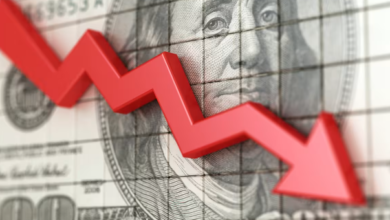What Is a Mortgage Origination Fee?

You’ve finally reached the point you’ve been working toward. After scrimping and saving for a down payment with a little left over for home improvements, spending over a year window-shopping homes just to see what’s available, and crunching the numbers to decide what you’re willing to pay for and what you’d have to DIY, it’s time to see how much a mortgage lender will approve you for.
And after that rigamarole, the mortgage broker drops the bomb that there’s one thing you didn’t know you needed to plan for: the origination fee. Apparently, you need a few thousand more dollars just to sign the paperwork. But you’re not even sure what an origination fee is.
If that describes you, know that you’re not the first person to hastily google “what is a mortgage origination fee” from one of those less-cozy-than-they-look leather seats in the bank. But don’t give the lender a dime until you know what costs the origination fee covers, how much they usually are, and how to negotiate these fees to save yourself some money.
What Is a Mortgage Origination Fee?
A mortgage origination fee is a charge from your mortgage lender that compensates it for services involved in giving you a loan. Some of the charges included in a mortgage origination fee include:

Motley Fool Stock Advisor recommendations have an average return of 397%. For $79 (or just $1.52 per week), join more than 1 million members and don’t miss their upcoming stock picks. 30 day money-back guarantee. Sign Up Now
- An application processing fee
- An underwriting fee
- A credit reporting fee
- An appraisal fee
- Other miscellaneous fees
You must pay these fees when you sign your loan paperwork. Typically, you make out a single check to cover your loan down payment and any other fees or upfront costs your lender is charging, including the mortgage origination fees.
How Mortgage Origination Fees Work
It might seem like an easy process: Check your credit score, appraise the home, and hand over the money you want to borrow. But the truth is mortgage lenders put a lot of effort into making loans.
When you apply for a mortgage, your lender is likely to spend hours checking your credit history and looking at the documents you provide to show your financial situation. A mortgage is a long-term commitment, and the lender wants to ensure you can keep making payments, even decades down the road.
The lender also needs to hire professionals to do things like check the home’s title for problems and physically inspect your home to ensure it’s in good condition and worth enough to justify the loan amount you’re asking for.
All this work takes time and costs money, which is why it can take a long time to get final approval for a mortgage loan. Lenders use mortgage origination fees to compensate for the expenses involved in preparing your loan.
The origination fee you have to pay shouldn’t be a surprise when you get to closing. Your lender should provide the info in your loan estimate as part of your closing disclosure. Though fees vary by lender based on many factors, they’re typically about 0.5% to 1.5% of the amount you’re borrowing.
Your origination fee may also include discount points, which are a way to prepay interest on your home loan as a way to save money in the long run. Points lead to lower monthly payments and interest costs over the life of the loan but add to your closing costs. They’re usually a good idea if you plan to stay in the home long term.
How to Negotiate Mortgage Origination Fees
As with everything else in the world of business, mortgage loan origination fees are negotiable. And there are a few tactics you can use to reduce the fees you pay.
The simplest is to ask your loan officer or lender to waive or reduce them. There’s no harm in asking, and the worst that can happen is they’ll say no. One way to strengthen your position is to show your lender a preapproval from another lender that’s charging lower fees.
You could also ask your lender about a no-closing-cost or no-origination-fee mortgage. These loans let you skip the upfront fee but usually have higher interest rates. That can be a good choice for people who want to buy a home despite limited savings. But the higher interest costs mean you’ll lose out if you stay in the home for a long time.
If you’re in a buyer’s market, you can also ask for seller concessions to cover a portion of the fee. You can negotiate with the current homeowner to determine how much they’re willing to pay for the loan application fee and other origination costs.
Mortgage Origination Fee FAQs
There are a lot of factors that influence mortgage origination fees, and they can add up quickly. It’s important to understand what you’re paying for and how much you’ll pay when you get a mortgage.
How Much Are Loan Origination Fees?
Loan origination fees can vary from one lender to another and with many other factors, but they typically depend on the amount you’re borrowing. Expect to pay between 0.5% and 1.5% of the loan amount in origination fees.
Why Do Mortgage Lenders Charge Origination Fees?
Mortgage lenders charge origination fees to compensate for the cost of reviewing and approving your application.
Does Every Mortgage Lender Charge an Origination Fee?
No, not every mortgage lender charges origination fees. Many lenders offer no-closing-cost or no-origination-fee loan options. However, these usually come with higher interest rates to compensate for the lack of upfront costs.
Is an Origination Fee Part of Closing Costs?
Yes, the origination fees for a mortgage are a part of the loan’s closing costs. You can find them on the closing disclosure, and you pay them when you go to close on your home purchase.
What Are Origination Points?
Origination points, also called mortgage points, are a type of prepaid interest. Many lenders offer the option to pay for points to reduce the interest rate of your mortgage. If you stay in the home long enough, that helps reduce the overall cost of your loan and your monthly mortgage payment.
Typically, one point costs 1% of the total loan amount and reduces the loan’s interest rate by 0.25%.
For example, on a $250,000, 30-year mortgage, one point costs $2,500. If you reduce your interest rate from 6% to 5.75% by buying a point, you reduce your payment from $1,499 to $1,459, saving you $14,400 over the life of the loan.
What’s the Difference Between an Origination Fee & Mortgage Points?
An origination fee is a fee you pay the lender to cover costs like underwriting and application processing. Mortgage points are optional prepaid interest fees. They serve to lower the interest rate on your mortgage. However, points are often included with origination fees on loan documents.
What Is the Average Origination Charge for a Refinance?
When you refinance, you’re getting a new mortgage to replace your existing one, which means paying origination fees on your new loan. Expect to pay about 0.5% to 1.5% of the amount you borrow.
Final Word
Mortgage origination fees are one of the many costs of home ownership. However, they’re often negotiable, and shopping around with multiple lenders can help you find the lowest fees or strengthen your negotiating position.
But it’s also a good idea to plan for origination fees and try not to get caught up in the weeds of origination costs versus other home-buying costs. A bank that has higher origination fees may be able to offer you lower interest rates, for example. And that might save you money too. So save up for a full origination fee, then any amount you can talk them down is just extra cash for your down payment or furnishing your new home.
Source link





